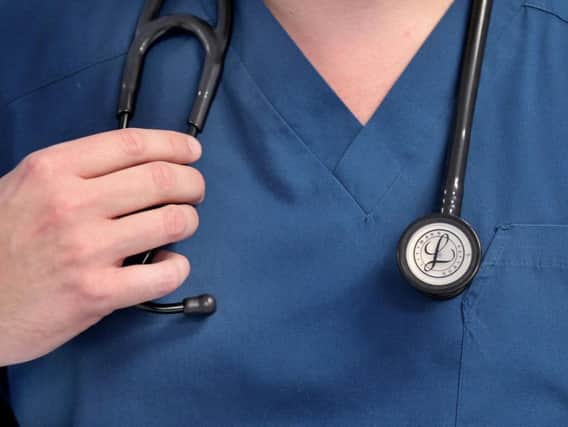Cancer treatment delay is causing great distress


A survey of more than 1,000 people recently diagnosed with cancer shows nearly two thirds (64%) experienced mental health problems such as anxiety and depression while waiting for their treatment to start.
The number of people waiting more than two months to start cancer treatment after an urgent referral was 25,157 in 2016 - the highest on record and up on the 23,760 in 2015 and 13,191 in 2010.
Advertisement
Hide AdAdvertisement
Hide AdMacmillan Cancer Support, which carried out the poll across England, said this could equate to around 190,000 people a year.
It found that one in eight (13 per cent) people recently diagnosed with cancer said their general health got worse while they waited for their treatment to start.
Some eight per cent said their cancer symptoms got worse or new symptoms developed - almost 25,000 people a year.
New NHS figures show that the target for cancer patients to start treatment within two months of urgent referral was breached for the whole of 2016.
Advertisement
Hide AdAdvertisement
Hide AdIn 2016, 25,157 people in England waited for more than two months for treatment to start - the highest number on record.
Dr Rosie Loftus, joint chief medical officer at Macmillan Cancer Support, said: “Going through cancer treatment can be a harrowing experience, and when people are made to wait long periods for treatment, it piles on even more uncertainty and distress.
“Waiting over two months to start treatment can have a profoundly negative impact on someone’s mental health, quite apart from the serious strain it can place on families and carers.
“Doctors and nurses do everything in their power to make sure treatment starts as quickly as possible, and cancelling operations is the very last thing they want to do.”
Advertisement
Hide AdAdvertisement
Hide AdDr Fran Woodard, executive director of policy and impact at the charity, said: “The delays cancer patients are experiencing are a stark warning sign that cancer services in England are struggling to keep up with demand. These pressures will only become more acute as the numbers of people diagnosed with cancer increases in the coming years.
“We now have a good strategy and the extra funding is now in place to now tackle these problems. This money must be ring-fenced so that it is used to transform services, and not fill existing holes in trust balance sheets.”
Meanwhile, figures for December reveal just 86.2 per cent of A&E patients were seen within four hours - the worst figure on record.
Dr Mark Holland, president of the Society for Acute Medicine, said while things have improved slightly this winter, “we are still seeing significant pockets of stress in the systemWe yet again call on the Secretary of State for Health to acknowledge the crisis. It is blatantly obvious to frontline healthcare workers and, more importantly, the patients they serve, that our NHS can no longer cope.”
Simon Stevens, chief executive of NHS England, told members of the board that the NHS was under pressure, but thanked hard-working staff.